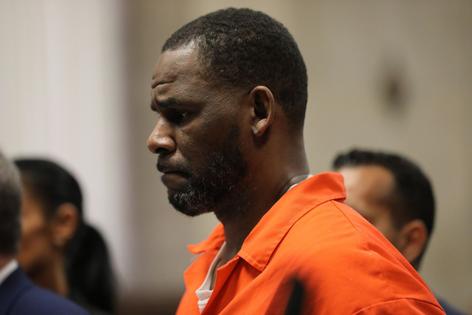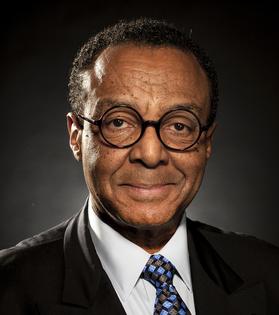The R. Kelly Verdict: Yes, Black Girls’ Lives Matter Too
At last, Black girls’ lives matter too.
That was my response to the news that Chicago-born R&B star singer, songwriter and producer R. Kelly had been convicted Monday in New York.
The federal jury convicted Robert Sylvester Kelly, 54, of federal racketeering and sex trafficking charges in connection with a decadeslong scheme to recruit women and underage girls for sex. One of the biggest names in popular music could face decades in prison.
That conviction itself was a breakthrough. Kelly had been beating back various civil charges alleging illicit sex with minors since 1997 and criminal charges since 2002.
After being kept in suspense for so many years only to have it all end with either relief or disappointment, depending on whose side they were on, my Chicago friends and relatives had begun to throw their hands up in frustration or relief, depending on whether they believed the charges.
I was hearing so many people say there was no way that Kelly, with all his money and clout, would ever be convicted that I had begun to believe it too.
But it turns out the culture has changed — and not just in Chicago.
In January 2019 “Surviving R. Kelly,” a Lifetime documentary detailing sexual abuse allegations against the singer, aired over three nights. Suddenly the public’s focus was shifted from Kelly to the other key figures in this morbid sage: the alleged victims.
“I want to believe that this means Black women survivors will be heard,” tweeted Dream Hampton, the film’s executive producer, “but I don’t want it to be dependent on a piece of media going viral.”
Indeed, there were a lot of pieces of media going viral. Music journalist Jim DeRogatis first wrote about accusations of R. Kelly’s sexual relationships with teenage girls in the Chicago Sun-Times in 2000. Two years later, he broke the story of the incriminating sex tape that would lead to Kelly’s first court case.
The 2002 indictment on child pornography charges grew out of a widely circulated sex tape. It purportedly showed him having sex with and urinating on a female whom prosecutors said was about 14 years old at the time.
After six years of delays, Kelly finally went to trial but the young woman who was thought to be the girl on the tape and her parents refused to testify. Kelly was acquitted of all charges.
But even as Kelly continued to release hits, DeRogatis kept finding more women to interview until his 2017 bombshell BuzzFeed report alleging multiple Kelly offenses helped put Kelly back in custody.
By then, we’d entered the #MeToo era, a time when long-rumored sexual allegations against Bill Cosby, Harvey Weinstein and other stars were being taken more seriously than ever, along with the women and girls who should have been the focus of such allegations all along.
At the same time, a new focus was swinging toward Kelly’s associates and lingering questions about how many strings he and his support network had to pull to keep him out of prison — and why had the charges not been taken more seriously earlier?
As film star Jada Pinkett Smith said in a video tweet, “I really don’t want to believe that it’s because Black girls don’t matter enough. Or is that the reason?”
Good question. As an African American I have to say that we can’t blame our widespread indifference or, in some cases, hostility to probes of Kelly’s scandalous private life on white racism. It is just as racist and, not to mention, sexist to presume such allegations are not worth pursuing. It is also self-defeating and self-destructive.
Yet, we also have to guard against any efforts to adopt a lynch-mob mentality that would rush to judgment in these cases or any others. Everyone deserves to have the right to due process. That includes the right to be presumed innocent until proved guilty.
But, just as we want to guard the rights of the accused, we can’t neglect the rights of the accusers. As PinkettSmith says, Black girl’s lives matter too, along with everybody else’s.
That’s why we turn to the courts and due process works. It can be slow and cumbersome, but it’s more reliable than the court of public opinion.
(E-mail Clarence Page at cpage@chicagotribune.com.)
©2021 Clarence Page. Distributed by Tribune Content Agency, LLC.
(c) 2021 CLARENCE PAGE DISTRIBUTED BY TRIBUNE MEDIA SERVICES, INC.










